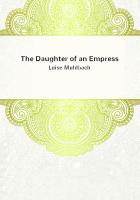Not content with concluding peace on terms favourable to Prussia, he solicited rank in the Prussian service, dressed himself in a Prussian uniform, wore the Black Eagle of Prussia on his breast, made preparations for visiting Prussia, in order to have an interview with the object of his idolatry, and actually sent fifteen thousand excellent troops to reinforce the shattered army of Frederic. Thus strengthened, the King speedily repaired the losses of the preceding year, reconquered Silesia, defeated Daun at Buckersdorf, invested and retook Schweidnitz, and, at the close of the year, presented to the forces of Maria Theresa a front as formidable as before the great reverses of 1759. Before the end of the campaign, his friend, the Emperor Peter, having, by a series of absurd insults to the institutions, manners, and feelings of his people, united them in hostility to his person and government, was deposed and murdered. The Empress, who, under the title of Catherine the Second, now assumed the supreme power, was, at the commencement of her administration, by no means partial to Frederic, and refused to permit her troops to remain under his command. But she observed the peace made by her husband; and Prussia was no longer threatened by danger from the East.
England and France at the same time paired off together. They concluded a treaty, by which they bound themselves to observe neutrality with respect to the German war. Thus the coalitions on both sides were dissolved; and the original enemies, Austria and Prussia, remained alone confronting each other.
Austria had undoubtedly far greater means than Prussia, and was less exhausted by hostilities; yet it seemed hardly possible that Austria could effect alone what she had in vain attempted to effect when supported by France on the one side, and by Russia on the other. Danger also began to menace the Imperial house from another quarter. The Ottoman Porte held threatening language, and a hundred thousand Turks were mustered on the frontiers of Hungary. The proud and revengeful spirit of the Empress Queen at length gave way; and, in February 1763, the peace of Hubertsburg put an end to the conflict which had, during seven years, devastated Germany. The King ceded nothing. The whole Continent in arms had proved unable to tear Silesia from that iron grasp.
The war was over. Frederic was safe. His glory was beyond the reach of envy. If he had not made conquests as vast as those of Alexander, of Caesar, and of Napoleon, if he had not, on fields of battle, enjoyed the constant success of Marlborough and Wellington, he had yet given an example unrivalled in history of what capacity and resolution can effect against the greatest superiority of power, and the utmost spite of fortune. He entered Berlin in triumph, after an absence of more than six years. The streets were brilliantly lighted up; and, as he passed along in an open carriage, with Ferdinand of Brunswick at his side, the multitude saluted him with loud praises and blessings. He was moved by those marks of attachment, and repeatedly exclaimed "Long live my dear people! Long live my children!" Yet, even in the midst of that gay spectacle, he could not but perceive everywhere the traces of destruction and decay. The city had been more than once plundered. The population had considerably diminished. Berlin, however, had suffered little when compared with most parts of the kingdom. The ruin of private fortunes, the distress of all ranks, was such as might appal the firmest mind.
Almost every province had been the seat of war, and of war conducted with merciless ferocity. Clouds of Croatians had descended on Silesia. Tens of thousands of Cossacks had been let loose on Pomerania and Brandenburg. The mere contributions levied by the invaders amounted, it was said, to more than a hundred millions of dollars; and the value of what they extorted was probably much less than the value of what they destroyed. The fields lay uncultivated. The very seed-corn had been devoured in the madness of hunger. Famine, and contagious maladies produced by famine, had swept away the herds and flocks; and there was reason to fear that a great pestilence among the human race was likely to follow in the train of that tremendous war. Near fifteen thousand houses had been burned to the ground. The population of the kingdom had in seven years decreased to the frightful extent of ten per cent. A sixth of the males capable of bearing arms had actually perished on the field of battle. In some districts, no labourers, except women, were seen in the fields at harvest-time. In others, the traveller passed shuddering through a succession of silent villages, in which not a single inhabitant remained. The currency had been debased; the authority of laws and magistrates had been suspended; the whole social system was deranged. For, during that convulsive struggle, everything that was not military violence was anarchy. Even the army was disorganised. Some great generals, and a crowd of excellent officers, had fallen, and it had been impossible to supply their place. The difficulty of finding recruits had, towards the close of the war, been so great, that selection and rejection were impossible. Whole battalions were composed of deserters or of prisoners. It was hardly to be hoped that thirty years of repose and industry would repair the ruin produced by seven years of havoc. One consolatory circumstance, indeed, there was. No debt had been incurred. The burdens of the war had been terrible, almost insupportable; but no arrear was left to embarrass the finances in time of peace.
Here, for the present, we must pause. We have accompanied Frederic to the close of his career as a warrior. Possibly, when these Memoirs are completed, we may resume the consideration of his character, and give some account of his domestic and foreign policy, and of his private habits, during the many years of tranquillity which followed the Seven Years' War.















